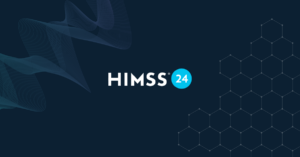The 8th Annual Health Datapalooza conference in Washington D.C. brought together a variety of data advocates who focused on how to harness the power of big data and put it into the hands of the people who benefit from it most: patients and providers. As part of the two-day event, one of our clients – Ian Morris, Clinical Data Interoperability Project Manager for the State of Mississippi, Division of Medicaid – presented as part of a panel titled “Health Systems Reaching Out to Patients and Providers.” During his presentation, Morris shared Medicaid’s experience of modernizing their Medicaid infrastructure and empowering real-time data sharing across all of Mississippi. In addition, Morris outlined lessons learned around interoperability and the roadmap for Medicaid’s interoperability efforts in years to come.
After the conference came to an end, we connected with Morris to discuss his experience at the event and other key takeaways. Morris shares his highlights below.
1. As a first-time attendee and presenter at Health Datapalooza, what intrigued you most about the event?
It was refreshing to hear the patient perspective. A lot of the time when you attend conferences that focus on data and analytics, you don’t get the rich patient narrative. However, Health Datapalooza took the imperative to put democratization of health data at the heart of the event. Empowering the physician and patient to take control of the data is what we’re all striving for, and that’s where organizations like Medicaid fit into the narrative. You need to understand the value of data first, and that’s where we – people such as interoperability managers – come into play. We translate that value, and once it’s understood by the provider, it can be shared externally with the patient.
2. What was a best practice that you learned from your peers and what do you hope to see at next year’s conference?
There were many presentations at the event that delved into the importance of collaborating between multiple state systems (i.e. bridging the broader health and human services, mental health and advocacy groups together) all for the greater good – improving patient outcomes via better data sharing. Such intricate collaboration efforts made me think of the initiatives Medicaid plans to embark on in the future. If there is one take away, it’s that statewide collaboration is key to better data sharing practices. My hope for next year’s conference is to have more speaking panels that touch upon just this, especially as it relates to interoperability efforts overall.
3. Other post-conference highlights that you’d like to share?
Health Datapalooza was full of energetic and enthusiastic data leaders. From patient advocates, to vendors to hands-on project managers, conference attendees and speakers embraced each other’s lessons and shared challenges of their own. Serving as a microcosm of what we’re all striving for in healthcare, Health Datapalooza reminds us that the sharing and analysis of data has a purpose – and that is ultimately to improve patient outcomes.
To read more about how Mississippi Division of Medicaid became the first Medicaid Agency to exchange clinical data summaries with their providers, read their story here. To learn more about how to act on your data and ensure quality, cost-effective care for Medicaid beneficiaries, visit our Provider Access solution here.
Get our take on industry trends
Optimize your revenue cycle for today’s challenges and tomorrow’s goals
In this dynamic LinkedIn Live discussion, Christine Stetler, BSN, RN and AVP of Solution Engineering at MedeAnalytics, unearthed strategies for…
Read on...Enhancing healthcare delivery with explainable AI: A methodological leap forward
Healthcare providers and payers continually seek methods to enhance patient care and operational efficiency. With the advent of complex data…
Read on...Another year, another great HIMSS!
HIMSS24 was a fantastic event, as always. One of our favorite additions this year was the Digital Health Technology Theme…
Read on...Optimize your midcycle for telehealth services
Telemedicine is now a permanent fixture in homes across America. A majority of healthcare organizations have established the technology necessary…
Read on...


